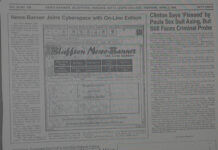The post-Cold War era has essentially ended now that Russian President Vladimir Putin launched the invasion of Ukraine, an independent, democratic nation, on Wednesday. Europe is now experiencing its first fighter jet-to-fighter jet, tank-to-tank military invasion since World War II. There is speculation a full-style incursion could end tens of thousands of lives, and generate…



